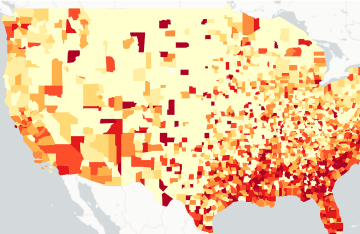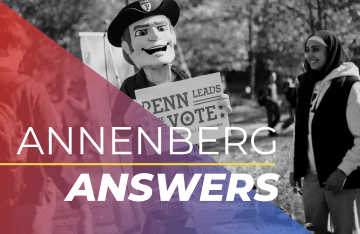New Report Finds Partisan Politics Drives Americans' Attitudes On Surveillance
Political ideology impacts how Americans feel about surveillance far more than do income, age, gender, and race/ethnicity.

Today, the Annenberg School for Communication released a report entitled "Divided We Feel: Partisan Politics Drive Americans' Emotions Regarding Surveillance of Low-Income Populations." It is the first national survey that examines Americans’ emotional responses to surveillance practices that disproportionately affect low-income populations. In the US, low-income individuals and people of color are more likely than others to experience commonplace monitoring by government and business. Examples of these activities include police surveillance of people with "characteristics that are common among criminals," using credit histories to make hiring decisions, government surveillance of grocery purchases made with food stamp (EBT) cards, and apartment owners using databases of prospective tenants' past rental histories.
In the digital era these activities can exacerbate social tensions as they contribute to a new frontier of social profiling. The findings show that the political divide manifests itself in the emotions Americans associate with everyday institutional surveillance. Party affiliation and political ideology impact how Americans feel about all these activities far more than do income, age, gender, and race/ethnicity.
The report's authors — Joseph Turow, Ph.D.; Michael Hennessy, Ph.D, Nora Draper, Ph.D., Ope Akanbi, and Diami Virgilio — found that many Americans from across the political spectrum are not troubled by the everyday surveillance practices described in the survey. Yet Democrats and Independents are almost always substantially more negative than Republicans in their feelings about surveillance.
Read a Q&A here with Professor Turow about the study. The report was covered here by the New York Times.



